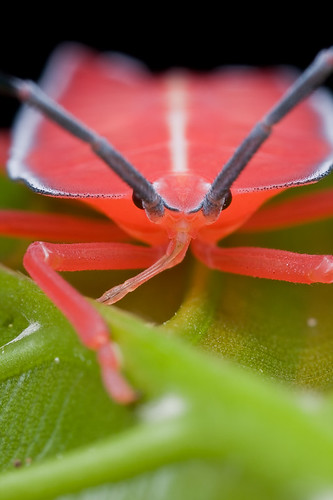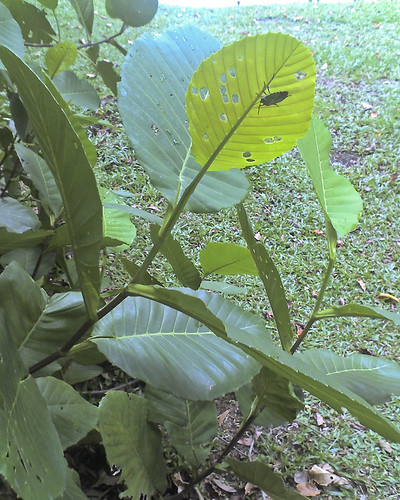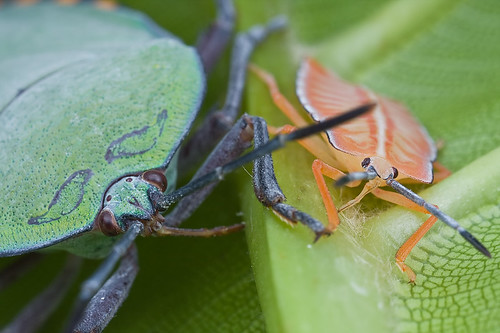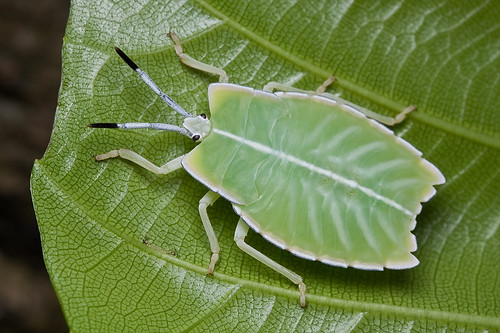Most of the images here were shot with a Canon 40D, MPE65 1X-5X Macro Lens
A shield bug nymph Pycanum rubens sucking sap from a Simpoh Air leaf Dillenia suffruticosa. I have always thought that it can only moves its proboscis up, down, frontward, backward, i.e. all within the same plane, but obviously i was wrong. It can move its proboscis sideway too as evident in this pic.

This will be the first of hopefully many more posts to come on some interesting insects/bugs and their host plants/favorite plants. This should make bug hunting easier, but as always, keep your eyes open and look just about anywhere and everywhere.
Simpoh Air plant (Dillenia suffruticosa) is a shrubby tree that grows vigorously on eroded soil, wasteland, forest edges and swampy areas. More info here. Image courtesy of CK Chow.

An adult Shield bug (Pycanum rubens) on its favorite plant - Simpoh Air (Dillenia suffruticosa)

Adult Pycanum rubens shield bugs

Adult Shield bug and shield bug nymph (Pycanum rubens) sucking sap from a Simpoh Air leaf(Dillenia suffruticosa)

Another shield bug nymph (Pycanum rubens). This is was more mature than the pink one i think.

This shield bug nymph (Pycanum rubens) was less mature than the green one

Now that you have read about this slr macro photography tip, it's time to go look for your first pink shield bug nymph. Good luck!
I personally find that great books such as The Smaller Majority
haven't see any shield bug yet. thanks for the infomation Master Kurt! will definately look closer at simpoh air plant! =)
ReplyDeleteNo prob JW. I'm sure you'll find them easily on most simpoh air plant.
ReplyDeleteThank you Kurt ShiFu!
ReplyDeleteYou're most welcome, Steve :)
ReplyDeleteAre the nymphs always so contrastingly pink or green? Interesting.
ReplyDeleteHi Ted, yes...they come in different shades of pink and green :)
ReplyDelete